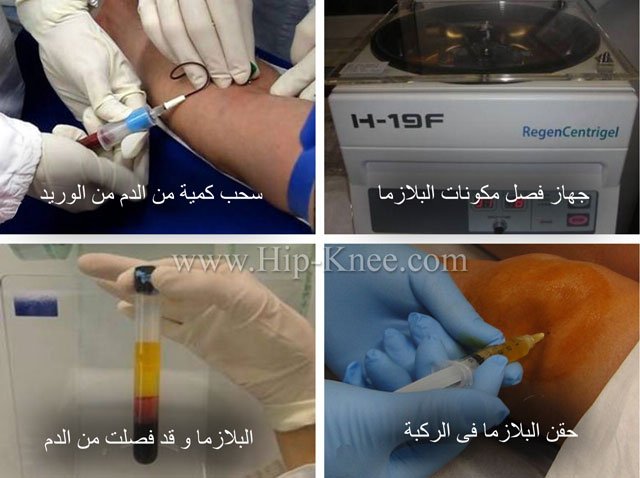The blood is formed mainly of fluid (plasma) in which blood cells and platelets are suspended. These platelets play an important role in the blood clotting. However, they also contain a lot of proteins knows as “growth factors”. These growth factors can stimulate other cells to reproduce enhancing tissue repair and wound healing. This is achieved by increasing collagen production, enhancing stem cell proliferation and stimulating blood flow.

Platelet-rich Plasma (PRP) is plasma fluid containing platelets in a concentration 5 -10 times more than blood. It is prepared by drawing 20 – 50 ml of blood from the patient. This blood is then fed to a sterile machine which, within minutes, separates the platelets from other blood cells. These concentrated platelets are then injected into the site of disease, sometimes under guidance of ultrasound machine to accurately identify the area of diseased tissues.
There are minimal risks associated with the use of PRP, and it can be repeated according to the condition of the patient. As the injection comes from the patient’s own blood products so there is no risk of reaction, allergy or rejection.
Conditions that can be treated by PRP:
- Knee arthritis: PRP has an anti-inflammatory effect and helps to protect the cartilage of the joint. Patients usually start to feel the benefit after 2-6 weeks of injection. PRP showed better improvement in patient’s knees than hyaluronic acid injections. However, it may not be beneficial in severe cases.
- Ligament and muscle injuries
- Chronic tendon diseases e.g. tennis elbow, shoulder rotator cuff and Achilles tendininits.
Despite the promising results achieved by PRP, there is still no agreement between doctors about certain aspects e.g. the proper volume and frequency of the injection. Still there is a lot of research being carried out to determine the best method to use these injection.
Instructions before injection:
- Stop corticosone medications 3 weeks before injection
- Stop taking non-steroidal anti-inflammatory drugs (NSAIDs), such as aspirin or ibuprofen 7 days before the injection
- Do not take anticoagulation drugs for 5 days before the procedure

